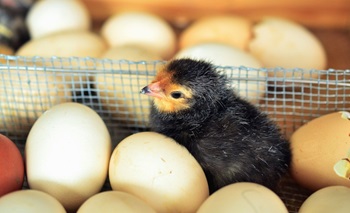Food Incubators Are Playing an Important Role in Assisting Early Stage Companies Producing Food Innovation
By: Margaret Core, Vice President, Marketing & Industry Relations, Food Marketing Institute

A friend of mine is a backyard, urban chicken farmer. She uses a traditional egg incubator to nurture, protect and grown her precious eggs into newborn chicks. Whenever she has tried to leave the eggs to fend for themselves, disaster has struck. Therefore, the preferred way to ensure a flourishing chicken population for my friend’s backyard coop is the use of an incubator.
Food incubators offer similar features to emerging food industry companies. Start-up food industry endeavors can work with a food incubator to nurture their idea, work on their recipe, learn the business ropes, understand packaging and production options, make distribution choices and protect themselves from obstacles and grow their business plans in a secure environment. In an industry experiencing a rapid pace of change, food incubators offer a way forward that merges innovation with practical application and business practices.
The incubator concept isn’t new. A number of land-grant universities, including Rutgers University, University of Nebraska, Virginia Tech, and Cornell University to name a few, have developed Food Innovation Centers featuring incubator programs to help encourage local job creation in the food industry. These universities help bring food science, technology and innovation together. However, the trend towards community food-based incubators, also called accelerators, is growing. DC Union Kitchen for example, offers an incubator environment for food industry entrepreneurs including a test kitchen, distribution company and grocery store to experiment with new products. FMI Associate member, Sunniva Coffee utilized DC Union Kitchen to launch their brand of protein infused iced coffee.
Outside the university food innovation center and the community accelerator options there is the commercial incubator option. Food-X, one of the largest commercial incubators, has a unique networking feature to their program that fosters members through the development, financing and pitching process, but also supports them long-term with an alumni network.
What’s clear is that incubators are finding a niche within the food industry and can play a role in helping find solutions to questions food retailers have around the digital shopper, omnichannel experiences and meeting customer needs for transparency. At the upcoming Midwinter Executive Conference, Andrew Ive, managing director and Food-X will join in the panel discussion on The Battle for the Food Marketplace: A View from Silicon Valley. I’m looking forward to hearing how the food incubator model can help the food retail industry adapt a start-up mentality and continue to nurture industry innovation.


 Industry Topics address your specific area of expertise with resources, reports, events and more.
Industry Topics address your specific area of expertise with resources, reports, events and more.
 Our Research covers consumer behavior and retail operation benchmarks so you can make informed business decisions.
Our Research covers consumer behavior and retail operation benchmarks so you can make informed business decisions.
 Events and Education including online and in-person help you advance your food retail career.
Events and Education including online and in-person help you advance your food retail career.
 Food Safety training, resources and guidance that help you create a company food safety culture.
Food Safety training, resources and guidance that help you create a company food safety culture.
 Government Affairs work — federal and state — on the latest food industry policy, regulatory and legislative issues.
Government Affairs work — federal and state — on the latest food industry policy, regulatory and legislative issues.
 Get Involved. From industry awards to newsletters and committees, these resources help you take advantage of your membership.
Get Involved. From industry awards to newsletters and committees, these resources help you take advantage of your membership.
 Best practices, guidance documents, infographics, signage and more for the food industry on the COVID-19 pandemic.
Best practices, guidance documents, infographics, signage and more for the food industry on the COVID-19 pandemic.
